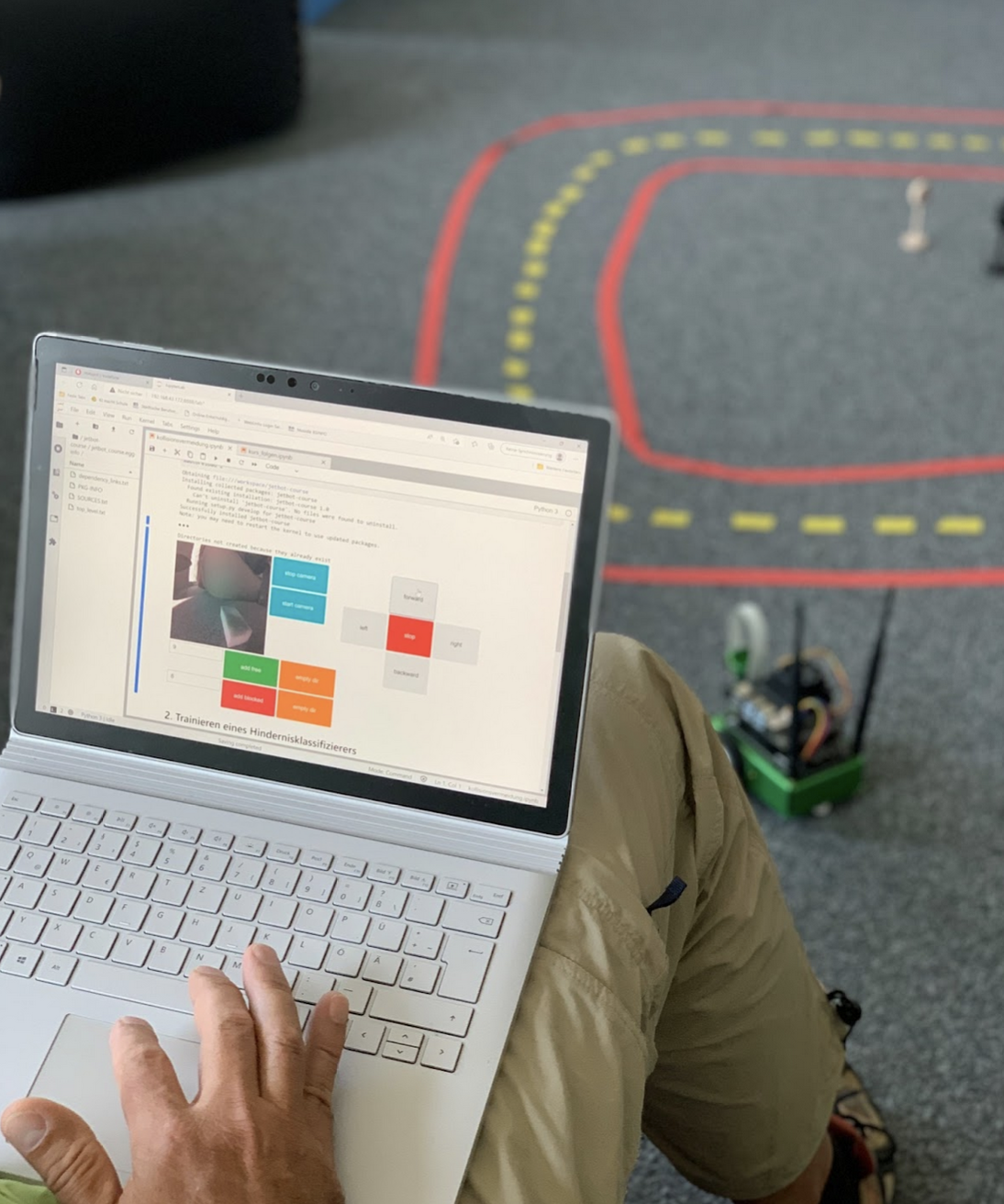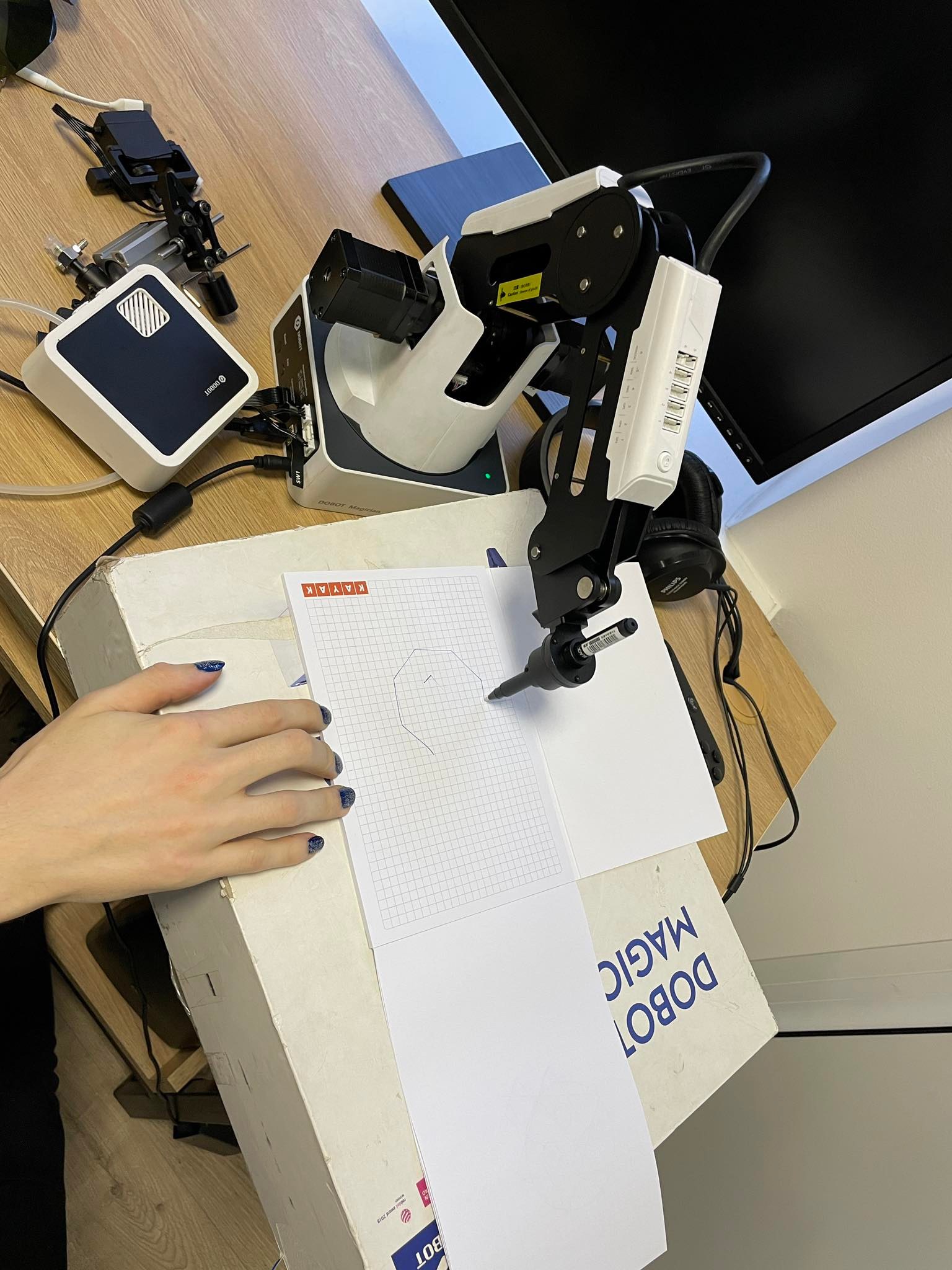GOAL OF THE PROJECT
Skill development
In this project, innovative, interactive and multidisciplinary methods were sought in order to strengthen the key competences/transversal skills in the actual competences of learners. The goal of the project was to develop Artificial Intelligence (AI) skills of ICT teachers and pupils in VET sector by offering learning/teaching/training material to respond to the demand of AI talent in the European labour market.
Lesson materials developed in this project was the first encounter with AI processes for targeted ICT teachers and students. Introducing machine learning into the curriculum was completely new to partner schools and the VET sector in general, as well as the applications and the hardware used for the learning process.


Our Objectives
The objectives of the project were to:
- Develop lesson materials for an innovative study unit Introduction to Artificial Intelligence - a comprehensive course for students who have basic programming skills, in order to equip them with knowledge of machine learning processes.
- Integrate the study unit into each partner country’s formal education system, thus enabling the sustainability of the project’s results and ensuring the incorporation of AI qualifications into national and European VET systems. The scope of the study unit varies depending on the country: 5-6 credits (90-150 hours), consisting of guided (classroom) hours, self-study and assessment (or 15 competence points based on local competence requirements in Finland). This study unit will be an optional (freely chosen) unit for multiple ICT-related study programs.
- Provide competence development for ICT teachers, as key actors in the acquisition and transference of new digital skills.
- Disseminate the project’s intellectual output across VET and other educational sectors.
Activities of the project

Development of lesson materials
In collaboration with partner schools, comprehensive lesson materials on different AI technologies were developed for 60 contact (classroom) hours in order to create the most relevant intellectual product for VET students. Lesson materials cover the topics of Autonomous Driving with Computer Vision, Machine Learning agents in Game Design, Robotic Arm and Computer Vision.
Teacher training
Teacher skill development was the cornerstone of the success and sustainability of the project. Teacher training empowered them to pilot the intellectual output with their pupils and act as trainers for other teachers. More than 10 teachers gained necessary competences required for teaching Introduction to Artificial Intelligence at their school and transferring knowledge to other ICT teachers.
Product validation
Piloting of the intellectual output was implemented in four partner schools in Malta, Lithuania and Finland. Developed lesson materials were included in the curriculum or offered as an extra-curricular activity. 100 target group students at the second or third year of different ICT-related study programmes developed their skills in programming AI. In the quality survey, teachers evaluated piloted learning material for teaching the basics of AI as very useful (mean value 4,4 out of 5) and students useful (mean value 4,2 out of 5).
Research
A survey was carried out to evaluate the pupils’ skills before and after the testing of the lesson materials and to provide structured feedback for the developers. Separate survey tools were be aimed at teachers and students. This information mapped out the quality and impact of the lesson materials. The research carried out during product validation indicated positive dynamics in gaining competences related to the course material. Research methodology can be used for evaluating learning results in the future, before and after the AI course.
International hackathon for students
A short-term pupils training event was held after the piloting stage in a form of a Scrum hackathon. It took place in Kaunas (Lithuania) in May 2022 and allowed to evaluate the learners‘ AI-related knowledge and skills after a pilot course. Also, it introduced Scrum project management principles.
Dissemination
Four multiplier events in each partner country gathering more than 70 learners, educators, policy makers, IT sector representatives from outside of the partner organizations and a variety of other disseminational activities were implemented in order to spread the message about an exciting opportunity for VET students to get prepared for Industry 4.0.
